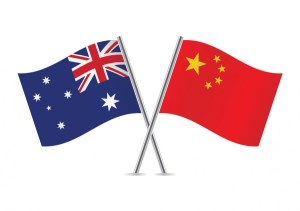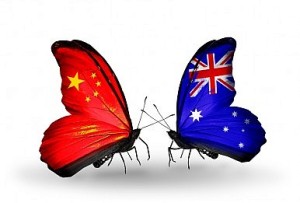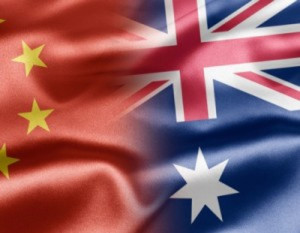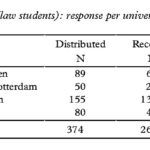我的故事 ~ 16. 一个爱情故事
我的出国赴澳看上去像是赶时髦,其实它根植于我的少女时期就怀抱的美丽梦想以及我身上不安于现状的因子。
大学毕业后,为了追随我的男友义无反顾地离开东北的父老家乡来到南方的深圳-这座从小渔村发展起来的现代城市。这里的9年,是锤炼我的9年,我从一个懵懂少女走向成熟的女性。爱情受挫,反倒磨练了我的意志,我全身心投入工作。前4年半在深圳职业技术学院做英语老师,后4年半受聘于巴拉瑞特大学的中国办事处,做福州大学的留学项目负责人。
这次工作的转换,其实可以说是开启我了的出国之心。将一批批学生送出国的时候,我的心里难免泛起涟漪。我还年轻,要是有机会,我当然也想出去见识外面的世界,外面的世界一定更精彩。但是,我还缺乏资本,于是提升学历成为我第一要务。我当时是大专学历,所以就在工作的同时,读了华南师大的本科,然后在2007年又完成了MBA课程。MBA授课是全英文的集中授课形式,更激发了我要去英语国家的想法,一是感受一下真正在国外课堂学习的氛围,二当然是体验一下国外的生活。出国成为我的梦想,这看似一个怀春少女的玫瑰色之梦,其实是一个成熟女子的理性梦想。
人都说幸运之神会光顾有准备的人。当我为出国之梦做着准备的时候,幸运之神真得来敲门了,而引导这个幸运之神的人便是如我恩师般的人物巴拉瑞特大学校长Kellin Goks教授。当时巴拉瑞特大学国际部正在向全球招聘的负责中国项目的市场工作人员,要求要懂中国的教育,懂澳大利亚的教育,而且具有工作经验,还要教育专业方面的知识。Kellin Goks教授非常认同我的工作能力和语言能力,鼓励我去申请。2008年的一月份,我飞赴澳洲面试,面试完几个小时之后,就得到通知被录取了。于是,当年的三月份,我就顺理成章地来到澳洲工作。
所以,我的赴澳优于那些来此从零开始奋斗的人,因为我是受ECU之聘来此上任工作的,所以就免去许多移民或留学生找工作的苦恼。当然,初来乍到,在一个完全陌生或者说以前只是在文字中有所认识的国度,孤独苦闷也是难免的。但是,我认为自己是心理坚强的女性,是善于调适的。刚开始,我的调适方式是醉心于工作,一是为了忘记自身的孤独,更重要的是要做出成绩得到上司和同事的认可,这样才能站稳脚跟。工作中大部分同事都是友善的、乐于助人的,也有些自以为是、喜欢对我的工作指手画脚的同事,我的处理方式是敞开你的心扉,同他们真诚交流,让他们了解你的为人、理解你的想法、你的态度,自然就会得到他们尊重你的回应与合作。在会议上,你要善于表达自己的计划设想,让人信服;在一对一的谈话时,你要真诚对待对方,让人信任。当工作上顺手了,生活安定下来,交了不少好朋友,也认同澳大利亚人将工作同生活分开的人生态度。这个时候,少女时期的梦想就来敲击自己的心灵深处,在中国没有寻到白马王子,在这个风景如画的异国城市能觅到如意郎君吗?有时候,我会望着如蔚蓝海水般的天鹅河出神,河水有节奏地拍打着沙滩,天鹅双双对对悠然嬉戏,海鸥展翅滑翔在蓝天。我的梦想如同蓝天上的白云那样清晰而飘渺。 Read more
My Story ~ 17. A Unique Personal Statement
 “After many years, when thinking back to the interview at the University of Melbourne Law School, I still feel that it was the peak of my life.”
“After many years, when thinking back to the interview at the University of Melbourne Law School, I still feel that it was the peak of my life.”
Before choosing to study law, I was rather hesitant and struggled with the decision – the voice telling me to study medicine had been part of my life as I grew up. My father died of illness when I was three and a half years old, so I grew up with my mother and grandmother. There was no father figure when we, four brothers and sisters, were growing up, which resulted in that we not only had living problems, but also lacked of spiritual support. Studying medicine was the inner thought and long-time desire of our father and was also an important support on my road of life. Once I thought that I would never let other children suffer the pain of losing a father. It also explains why a lot of my families choose to study medicine; the motivation is simply related to my father. In addition, I believe you have read my resume, which shows that I was involved in foreign trade and have worked in that field for nearly 10 years. Regardless of life experience, after all it has given me it is no wonder that you may ask why I chose law. I have already got my answer in my heart.
Personally, perhaps the law is more suitable for me than medicine, because I know that it is my inner voice speaking. Medical science can help a lot of people, and it is also the motivation formed by my family background; while the law is quite different, it is my personal expectation, and the priority of my interests. People should respect the preference of their hearts, because that will provide permanent encouragement in the future.
The study of law and foreign trade can complement each other to some extent. With the guarantee of systems and institutions, trading can be more rewarding. By studying law, I also would like to help the future exchange between China and Australia, yes, the exchange between two countries — the international association.
At this point of the interview at the Law School of University of Melbourne, the teacher suddenly laughed heartily, and said that I spoke from the heart, with great feeling and this was the most unique statement that he had ever heard. I felt embarrassed and scratched my head and smiled kindly. Perhaps the teacher wanted to see my “caring about the world” face. Soon after the interview, I was told that I was admitted to the Law School. Read more
我的故事 ~ 17. 最独特的个人声明
 “多年后的我,回想起当年在墨大法学院面试的场景,仍会觉得,那是岁月里,最好的自己。”
“多年后的我,回想起当年在墨大法学院面试的场景,仍会觉得,那是岁月里,最好的自己。”
没错,在选择学法律之前,我的确有过几分犹豫和挣扎——学医这个声音一路伴随着我成长。三岁半的时候我父亲就生病去世了。所以,小时候的我是跟着妈妈和奶奶长大的。家里兄弟姐妹四个,一路走来,没有父亲。没有父亲的孩子,不单单会有生活物质上的问题,还有精神上的欠缺,那是长期以来内心对父亲的思念与渴望。所以,学医救人这个意愿曾是我人生道路上重要的支撑点,因为我曾一度想着,再也不要让别的孩子也遭受没有父亲的痛苦。这也解释了为什么我们家里人有那么多学医,这种朴素的动力都跟父亲有关。另外,相信您也看到了我的简历,我之前都是做外贸的,不论这是否关乎人生际遇问题,但毕竟也已经做了将近10年。您肯定会问我,为什么要来学法律?这一点儿也不奇怪,所以,我的心里早就准备好了答卷。
从我个人角度来讲,也许法律比医学更适合我。因为我知道,这是我内心的声音。学医固然可以帮助很多人,但毕竟是由家庭背景转化过来的动力;而法律则不同,这是我的个人期望,是我众多所好中的优先。人要尊重内心的偏好,因为那才是今后永久的鞭策。
法律和外贸在一定程度上也是相辅相成的,有了体系和制度的保障,生意才能更加兴旺。而学了法律,我也想看看将来能不能在中澳两国的交流上有所帮助。对,就是两国的交流,国际之间的关联。
说到这里,老师您突然开怀地乐了,笑着说你好大的口气,你的这份儿声明可是我有史以来看过的最独特的。我不好意思地挠挠头,憨憨地笑。或许是因为老师想仔细看看我那“忧天下”的操心,面试还没结束多久,我就被告知我被录取了。
我曾经一度认为,没有人可以仅凭一己之力站立,每个人都在自己所在的土地上寻找那个可以用尽全身力气去拥抱的对象,并希望这个拥抱可以让自己变得安全、强大甚至完满。从91年最初来这里,到97年拿到永久居住卡,再到2005年载誉回国,在如今的这片土地上,我算是成功的——全澳共有600多名律师,从中国来的只有两位,而能在墨尔本这种顶级律师所担任特别顾问的,我还是头一个。虽然已然称得上跻身于主流社会,但我仍旧觉得不安,仍旧继续在寻找那种让我内心完满的东西。慢慢地,我想我琢磨出了这种东西应该有的名字,民族社区。
对于自己的定位,我一直是明确地设定为“中国人在海外”。漂洋过海,我来到这片土地。这里的语言,我想学习;这里的习俗,我想了解。我积极交流,我努力融入,但无论怎样,我从来不觉得失去了自我。也许我的口音被矫正了,也许我的习惯被改变了,但我自始至终明白我是中国人的身份。就好比我的名字,“黎明”,父亲取之于早晨出生之时,我一直沿用到现在,从未更改。有人跟我说,你该取个英文名,在西方的国家,就该有个西方的名字,交朋友便于熟识也好,对于律师的工作有利也罢,至少能让别人在见面时立马就记住你。而我总说,没那个必要。可能我的名字不太好记,但若人家真的有心要来认识,也是能够记住的。所以我没有必要去起一个我父亲不知道的名字,这是一个纪念,也是出于对父亲的尊重。从一开始,我就给自己定下了一个原则,那就是名字是从来都不改的,也是不可以改的,中国人嘛,就用自己中国的名字。 Read more
My Story ~ 18. Full Circle
 “You need to possess a fearless spirit or you will be overwhelmed and buried alive.”
“You need to possess a fearless spirit or you will be overwhelmed and buried alive.”
I was born in Jing Gang Shan, a significant revolutionary base area during the civil war. People from there all possess an adventurous pioneering spirit. They move from one life circle to another, of course, I’m no exception.
Consider the old saying – “knowledge changes destiny”, my college was the first life circle I encountered. However, what I hadn’t expected was that despite the fact that I had moved through various circles, I have never left this big city. Most Chinese prefer the feeling of advantage, so poor students like me who have come from underdeveloped areas and have gone to successfully graduate from a general university to Chinese Academy of Science, have always been underestimated when they first started their studies. In my case, my basic skills were little better than those who studied at a famous school. But I never gave up. On the one hand, I followed my supervisor who had just come back from America and I spared no effort to make up for my lack of knowledge. On the other hand, I participated in the research and exhibitions of PhDs. My hard work and diligence paid dividends. I demonstrated my ability in various aspects of my studies which was acknowledged by my supervisors and tutors. Last year, my old supervisor wrote an article to congratulate me on my becoming an associate professor. The paper mentioned his early impressions of me and also commented on my work ethic and achievements.
This was followed in Germany where I earned a post-doctorate and the honor of becoming an Alexander von Humboldt Fellow. Frankly speaking, I was mixing with people from Tsinghua University, Hong Kong University and the National University of Singapore. They compared me to a country bumpkin and I could sense their scorn and superior attitude. I was not influenced by or hold these negative attitudes. It’s research and results that matter, not class origin. I remember a colleague approached me one day and said:“come and see, you will be inspired from this good piece of work?” I looked over and unexpectedly discovered that it was my writing that he was referring to. After that, I was often invited for coffee and a discussion. With a strong sense of belief and a pioneering spirit, I, as the only Chinese in this German Tutorial Project, finally won others’ acknowledgement and recognition. I also successfully participated in some big European research projects. After hearing that I was about to leave for Australia, my supervisor was quite sad and hoped that I could stay. However, in my mind, I knew that I should continue on my journey through life. So I started to roll just like a gyroscope, and to my surprise, here I am in the southern hemisphere. Many people have asked me: “There are so many countries, why do you choose Australia?” “Well, besides the comprehensive environment including nature and culture, Australia is an immigration country where Chinese can establish their identity and nor feel excluded.” I think this is the main reason why many people choose Australia. However in spite of the smooth life here, we do encounter hard times. After all, it’s not difficult to imagine that if a seed cultivated in China wants to take root in Australia, it inevitably goes through periods of bitter suffering. For a new comer from northern China to break into the daily life of local teachers, we both must go through a process of accepting and being accepted. What I have to learn first are the rules of game. Although I’ve taken part in various national and other projects, participated at institute conferences and published papers, it is still a hard job to become accepted by your peers. A supervisor directing a Chinese student will find that the same article prepared by him will attract more attention and will create more opportunities. There’s also another saying: “Chinese people have to possess at least three to five abilities, thus receive acceptance”. After all, we are outsiders, and although they would approve of you and agree with you, there are still issues to be solved. Besides these career obstacles to overcome in order to get accepted in academia, we have another problem — our accent. English is not our mother tongue and we speak with an accent. Some students would frown once we started to speak and you could sense disapproval. Well, what comforts me is that we have an Iranian co-worker whose English is actually quite good, so we usually chat and share our opinions about life over coffee or tea. I feel that my English is finally being accepted and is no longer an issue. Read more
我的故事 ~ 18. 圈子
 “靠的就是这股子闯劲儿,没有闯劲儿的话,慢慢就被生活给湮没了。”
“靠的就是这股子闯劲儿,没有闯劲儿的话,慢慢就被生活给湮没了。”
我出生于革命老区——井冈山。我们那儿的人啊,特有一股子闯劲儿。走南闯北,从这个圈子闯进另一个圈子,我也不例外。
知识改变命运,大学是我闯进的第一个圈子。没想到,今后不断地跳着圈子,却也离不开这座大城了。大部分中国人喜欢拔高自己的优越性,而像我这样来自欠发达地区的,又是从一般院校考入中科院的穷学生,在刚读研究生那会儿就被人瞧不起过。刚入学的时候,基础不太好,比不上那些名校来的学生,但是我不服输。跟着刚从美国回来的导师,我尽全力把知识掌握扎实,帮着同一期读博士的师兄师姐们做科研、弄展览。渐渐地,各方面都越做越出色,得到了导师及各位老师的认可。就在去年,曾经的导师特意发博文恭喜我成为副教授,并回忆了当年对我的印象,工作的肯定等等。
接着,我闯进了德国,读博士后,拿到了洪堡学者的殊荣。但当时去的都是清华的,港大的,新加坡国立大学的,而相比之下,我就是一土鳖,从他们的眼神中我看到了不屑。我不服气,每个人的水平是看科研的能力,不是出身怎么样,对不对?当时合作的有一名马来西亚的教授,某一天,他叫住我说:“来来,这篇文章挺好的,你好好读读对你的工作会有启发的。”我一看,呵,这不是我写的么!因为用的是英文缩写,这名教授没认出来,他说来这儿的人都要看看这篇文章,没想到是我写的。此后,常常有教授找我喝喝咖啡,聊聊想法。凭着强大的信念,以及敢闯的精神,慢慢让大家认识我、认可我,成为了德国导师项目中,唯一的一个中国人。我参与帮他策划欧洲大的科研项目,并且都中了。在得知我要去澳大利亚后,德国导师万分不舍,希望我留下来。但是我不能停留自己的脚步,我要继续闯一闯。
我就像一颗陀螺,转个不停,没想到这一转,就转到了南半球。很多朋友都问我,这么多国家,你为什么选择来澳洲。澳洲是个移民国家嘛,华人在这儿比较有认同感,不会有特别排斥其他文化的现象,而且整体环境包括自然、人文的都不错。我想,很多选择来澳洲的朋友们,考虑的都是这几点。虽然在澳洲的这些年还是比较一帆风顺的,但内心还是苦苦挣扎过。毕竟,一颗中国土壤培育出来的种子,想要在澳洲深深地扎下根,其中的煎熬也是可以想象的。像我这样中途从北半球吹来,突然闯入当地老师圈子的,对自己来说也好,对他们来说也罢,都需要一个接受和被接受的过程。而我首先得知道这个圈子的游戏规则,包括写项目,包括做贡献等等。虽然国家项目,各个项目的我都评过,也参加各项学术会议,发表文章,但是要完全认可你,主动给项目的话,从我的角度来说,在澳洲还是比较难。一名带着中国人的东欧老师发现,同一篇文章,如果拿他自己打第一作者,就引用的机会来说,比拿中国人做第一作者,高多了。圈子里还有一个说法,那就是,中国人在科研能力上至少比西方人强三到五倍,人家才会认可你。毕竟我们是外来的,他虽然认可你的业绩,但不会把钱铺到你的身上去。关于这些游戏规则,我也还在慢慢摸索。学术方面的认可,除了在事业角度上有一些困难,还有另外一个问题,那就是口音。英语并非我们的母语,在上课的时候,我们确实带有一定的口音。那帮学生,尤其是澳洲当地的学生,他们对我们口音是很排斥的,一些学生甚至看到你的中文名字就皱眉。好在有一位伊朗同事,他的英文非常好,我们就每天早一杯咖啡,晚一杯咖啡地这么聊着,谈工作,谈生活,海阔天空地谈着,好歹拯救了一下我那口蹩脚的英文。 Read more
My Story ~ 19. We Are The Masters Of Our Destiny
 “So many people living in the world, they all have something in common.”
“So many people living in the world, they all have something in common.”
I dare not compare myself with great people such as Sun Yat-sen and Lu Xun, but like them I also started by learning medical skills. Having medical skills can relieve patients from illness, but cure few. Although my medical skill could heal their physical ailments, I was unable to heal their mental anguish. I wanted to do more for them. Thus came the thought of entering politics.
My ancestors were from Hangzhou, Zhejiang Province, but I was born in Shanghai, then went to Japan. In Japan, due to various reasons I didn’t feel comfortable; my parents thought it would be better to go to an English- speaking country. Since I wanted to be a doctor, at the end of 1980, I came to Australia from Japan to study medicine. At that time, U.S. was strongly anti-Chinese, but Australia seemed to be more willing to accept foreign students, but to study medicine was still very hard. After a lot of setbacks, I finally went to the medical college.
At the beginning it was not easy for me to integrate into the local culture, environment and other aspects of life. In Australia, medicine is the most difficult major, especially for foreign students. Therefore I made up my mind to learn biology first and enter the medical school as soon as my score was good enough. In fact, it was not so easy. I got a degree, but failed to find work in the hospital. Then I tried to find a job wherever I could. Finally, a hospital in Melbourne invited me to work there, and guaranteed me a position, so I decided to accept their offer.
At that time, when a employer nominated someone to come and work, they found that many foreign students stayed for a time, later, their parents would come along too, but it was very difficult for them. It was because of the so-called “three NOs: eyes cannot see, ears cannot hear, and mouth cannot say”. The only thing the elders could do was to count the number of vehicles back and forth, or to walk around on the streets. They felt very depressed. However, I firmly believe that if you come to this country you must try to integrate yourself into this society.
After a while, my language and other aspects of adapting to a new life were better than other foreign students. Therefore, many people, both Chinese and European Australians encouraged me to participate in politics. The first step into politics was the local government. In 2002, I was nominated in city council elections and won. I was probably the first councilor with a Chinese mainland background in Australian history. Read more




